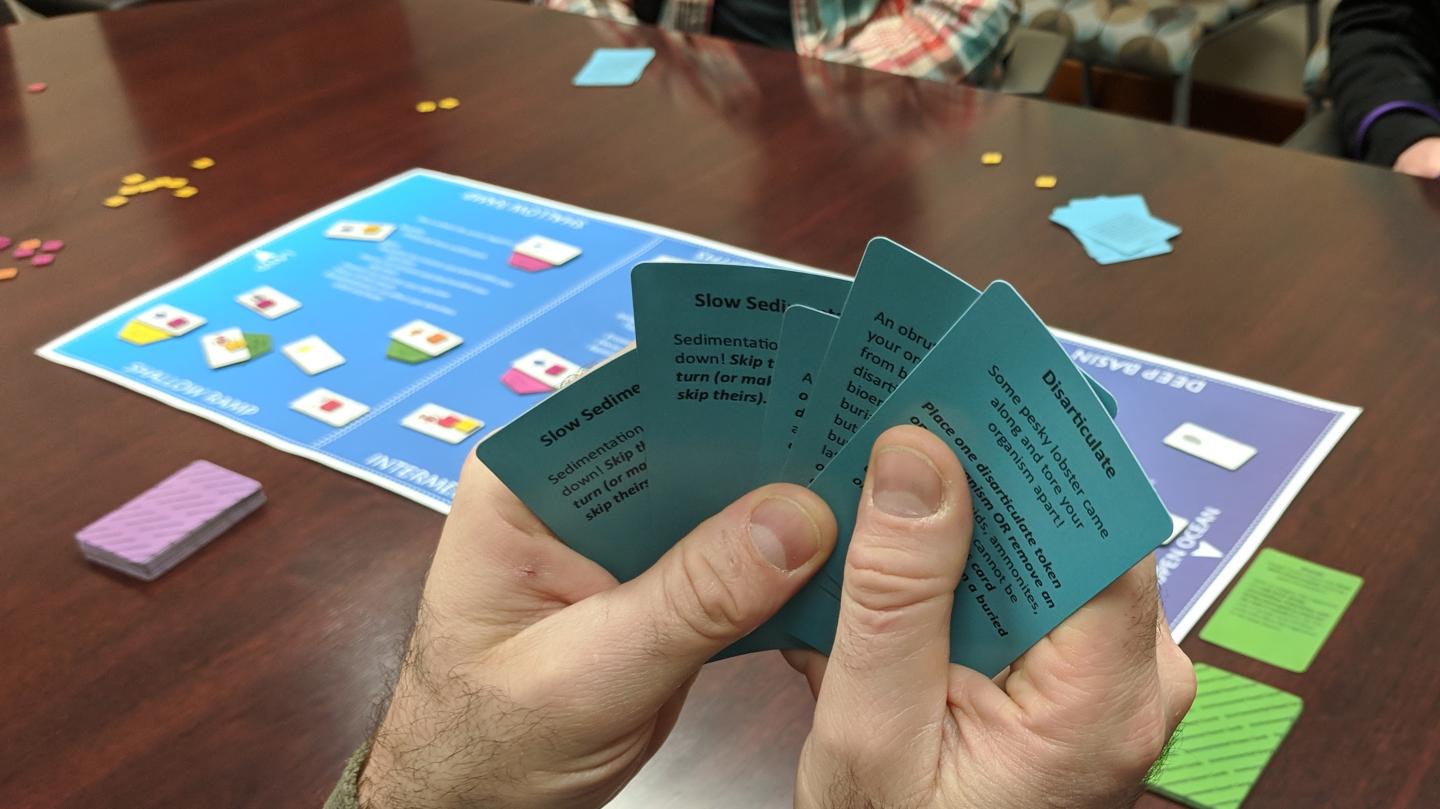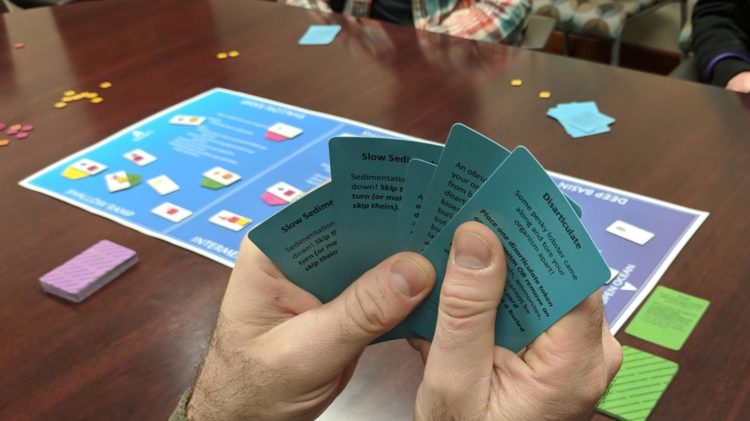
Credit: Rowan Martindale/ The University of Texas at Austin Jackson School of Geosciences
Becoming a fossil is the ultimate game of chance.
From the manner of death, to the place where the corpse is buried, to the transformational events that follow, it’s a rare occurrence for a specimen to hit a combo that will get it into the fossil record. And only the luckiest of fossils become part of a scientific collection you would see in a museum.
Drawing inspiration straight from the source material, two researchers from The University of Texas at Austin have designed their own game of chance and skill – a board game that puts students in the role of time-travelling paleontologists – to teach key concepts about how fossils form. According to a study published in the Journal of Geoscience Education, the game is a useful tool in teaching the notoriously difficult subject of taphonomy, or how dead things become fossils.
The study found that 71 percent of students thought the game helped them learn about fossilization, and 66 percent of students who played the game thought it was fun.
“Rather than learning abstract concepts from a lecture or textbook, the students learn what promotes or hinders fossilization as they encounter these factors through game play,” said UT Jackson School of Geosciences Assistant Professor Rowan Martindale. “Overall, students seemed to really like it, and many preferred the game to a regular lab.”
Martindale co-designed the game and co-authored the study with Anna Weiss, who earned her Ph.D. from the Jackson School in 2019 and is now a postdoctoral researcher at the University of Belize.
The game – called “Taphonomy: Dead and Fossilized” – is available for free online and can be printed out on card stock.
Games have long been a way to help teach students new concepts, but they have rarely been used in the Earth sciences, according to the study. Weiss and Martindale thought that “gamifying” concepts that are usually presented in a lecture would be a way to boost student engagement with the material.
“I wanted students to get more from it than just memorizing the different types of fossilization,” Weiss said. “From there we started to develop the idea of building a board game.”
The game is based on a Jurassic fossil site in Canada where Martindale has conducted research. It follows the specimens on their journey to become fossils, illustrating important lessons on the factors that influence preservation and discovery.
For the study, the researchers enlisted the help of 760 students enrolled in undergraduate geosciences courses at 20 institutions during the 2018-2019 school year. The class sizes ranged from four to 252 students.
The study collected detailed feedback on the game and presents how opinions differ by student demographics, including gender, ethnicity, academic year and major. Unsurprisingly, geosciences students and students who played a lot of board games liked the game the most. Minority student and non-STEM majors were less excited about the game.
Michael Chiappone, an undergraduate student at the Jackson School, played the board game in Martindale’s “Life Through Time” geosciences class. He said the game was not only a means to discovery, but also a way for players to learn through experimentation.
“The fact that you got to choose where your fossils went, and then had to stand back and watch the consequences play out, that’s experimentation, which is not something that’s just paleo specific, but for science as a whole,” he said.
While the game is designed with undergraduates in mind, Martindale said that the game is flexible and adaptable to different players and settings. Martindale and her team are currently testing an abbreviated version of the game for high school students.
“I think we have managed to make something that is both fun and educational,” Martindale said. “I hope to see people using it in their classes.”
###
The National Science Foundation Division of Earth Sciences supported the game development and study.
Media Contact
Monica Kortsha
[email protected]
512-471-2241
Original Source
http://www.
Related Journal Article
http://dx.





